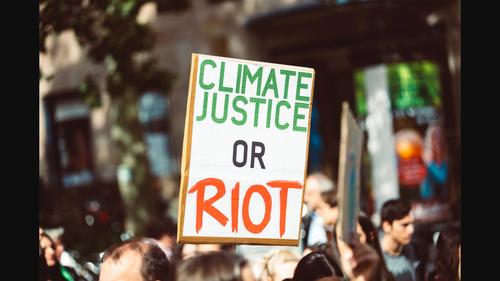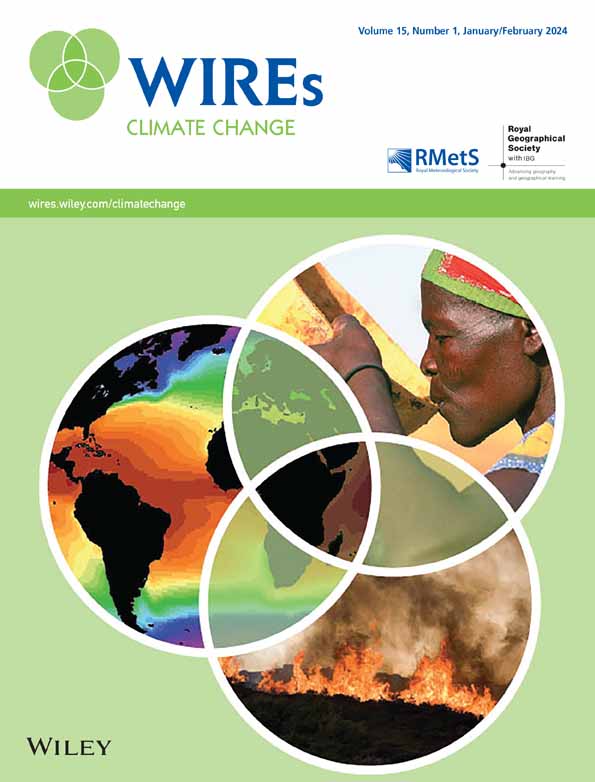气候正义核心的多层次群体间冲突:心理挑战和前进方向
IF 10.3
1区 环境科学与生态学
Q1 ENVIRONMENTAL STUDIES
引用次数: 1
摘要
尽管发达国家在历史上对造成气候变化负有责任,但发展中国家更容易受到气候变化当前和未来影响的影响,并被要求承诺超出其责任和能力的气候行动水平。气候变化对某些群体(包括妇女、少数民族和穷人)的影响比其他群体更大,从而加剧了现有的社会不平等。政府和科学院等强大的机构有责任改变这一进程,推进气候正义,但它们自己也受到不平等的损害。鉴于这些差异,如何在利益攸关方之间公平分配减轻气候变化负担的问题对国际和国内气候谈判至关重要。来自社会认同和群体过程的见解解释了地理和社会人口维度上的不平等经历如何产生身份和群体。作为群体成员,人们对内部群体的威胁很敏感,代表群体体验集体情绪,对内部群体和外部群体的道德应用也不同。成员也被激励去保护和促进他们的群体相对于外部群体的利益。社会心理学为潜在的解决方案提供了一些有前途的研究途径,以减轻作为气候正义障碍的多层次群体间冲突。对政策制定者和谈判者的气候治理建议包括激励综合解决方案和充分考虑气候政策的正义影响。鼓励气候学者开展跨学科合作,提高学院内部和研究样本的多样性,并优先考虑发展中国家的气候适应。本文章由计算机程序翻译,如有差异,请以英文原文为准。

Multilevel intergroup conflict at the core of climate (in)justice: Psychological challenges and ways forward
Although developed countries have been historically responsible for causing climate change, developing countries are more vulnerable to its current and future effects and being asked to commit to levels of climate action that exceed their responsibilities and capabilities. Climate change exacerbates existing social inequities by disproportionately impacting certain groups (including women, racial minorities, and the poor) more than others. Powerful institutions such as the government and the academy have a responsibility to alter this course and advance climate justice but are themselves marred by inequities. Given these disparities, the question of how the burden of climate change mitigation should be justly distributed amongst stakeholders is of paramount importance to international and domestic climate negotiations. Insights from the social identity and group processes literatures explain how experiences of inequity along geographical and sociodemographic dimensions generate identities and groups. As group members, people are sensitive to threats to the ingroup, experience collective emotions on behalf of the group, and differentially apply morality to in‐ versus outgroups. Members are also incentivized to protect and further their group's interests relative to outgroups. Social psychology offers some promising avenues of research for potential solutions to mitigate the multilevel intergroup conflict posing as a barrier to climate justice. Climate governance recommendations to policymakers and negotiators include incentivizing integrative solutions and fully considering the justice implications of climate policy. Climate scholars are encouraged to pursue interdisciplinary collaborations, improve diversity within the academy and in research samples, and prioritize climate adaptation in developing contexts.
求助全文
通过发布文献求助,成功后即可免费获取论文全文。
去求助
来源期刊

Wiley Interdisciplinary Reviews: Climate Change
METEOROLOGY & ATMOSPHERIC SCIENCES-
CiteScore
20.00
自引率
2.20%
发文量
58
审稿时长
>12 weeks
期刊介绍:
WIREs Climate Change serves as a distinctive platform for delving into current and emerging knowledge across various disciplines contributing to the understanding of climate change. This includes environmental history, humanities, physical and life sciences, social sciences, engineering, and economics. Developed in association with the Royal Meteorological Society and the Royal Geographical Society (with IBG) in the UK, this publication acts as an encyclopedic reference for climate change scholarship and research, offering a forum to explore diverse perspectives on how climate change is comprehended, analyzed, and contested globally.
 求助内容:
求助内容: 应助结果提醒方式:
应助结果提醒方式:


